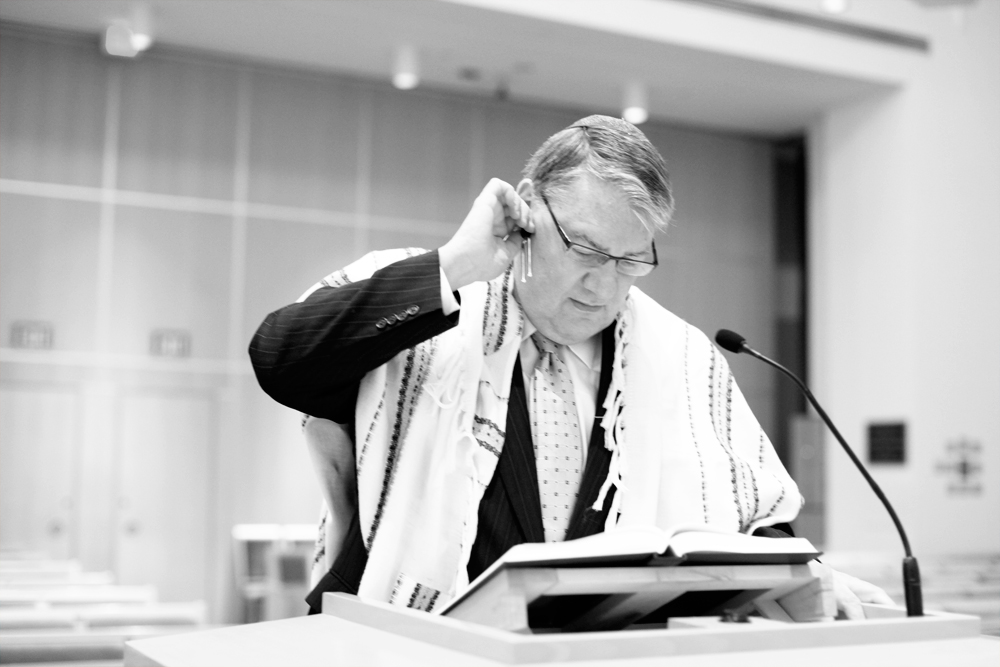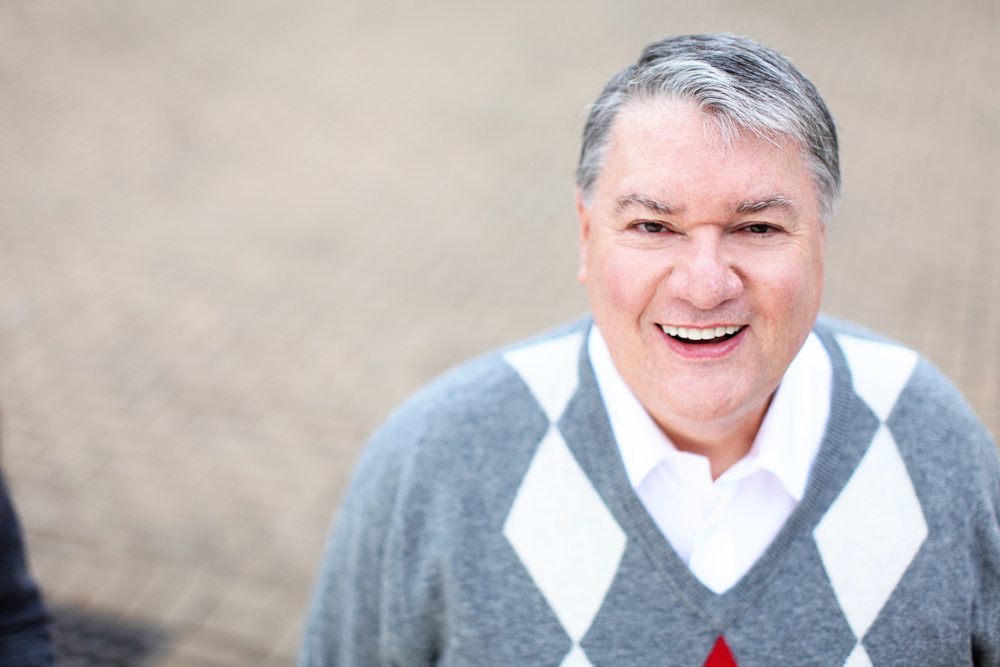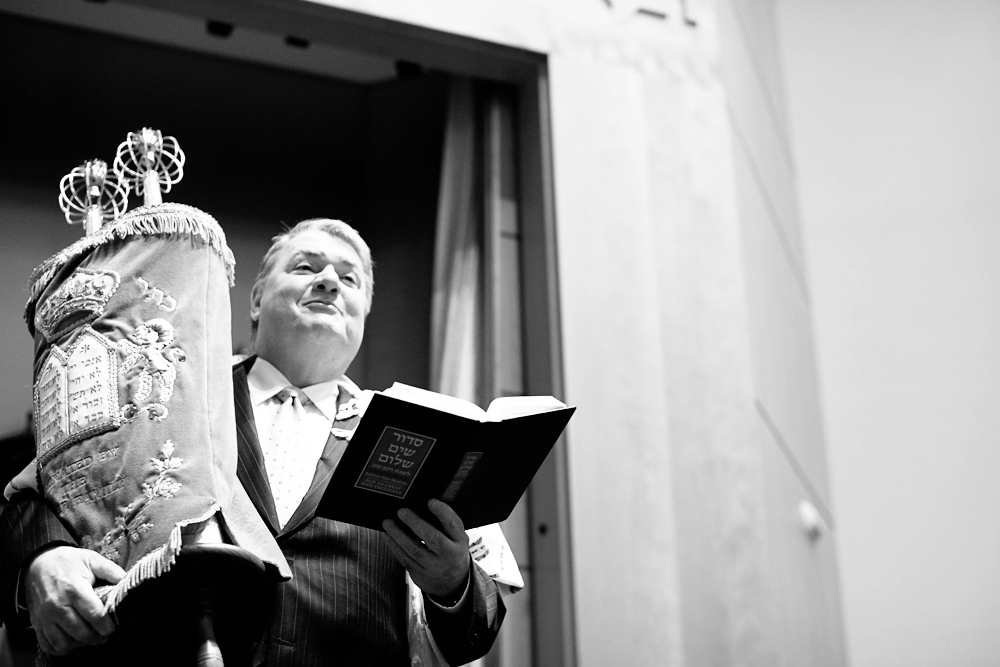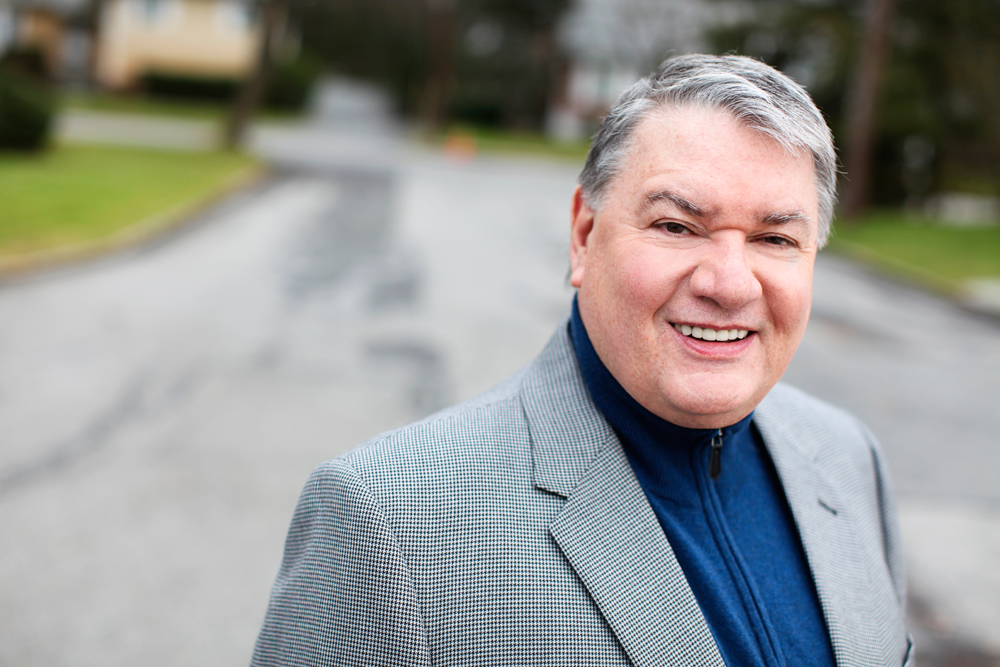Marty's Leather Factory: A love story
I served as Cantor for a large congregation called Beth Torah, in North Miami Beach from 1972 till ’76. All that time I was homesick for the Big Apple. In my last year, the stars must have been in perfect alignment, for I began singing better than I’d ever had before. So good, in fact, I was stricken by the age old Cantorial malady known as the “Opera Bug.” Most serious singing Cantors in all of history, have dreamed of crossing over to that promised land of ovations and glory. Not to mention gorgeous sopranos. Back in ’68, my buddy, Neil Shicoff, had matriculated from Cantorial school to Juilliard, and eventually the Metropolitan Opera. Those of us who had hung out with Neil back in the day when he owned one shiny suit, were giddy with his success. One of us had really made it! So, when my own cranky voice showed real signs of coming along, the idea of following in his footsteps was intoxicating. Though I always had an impressive vocal instrument, my singing was often erratic because of it’s sheer size. Big voices are the hardest to harness. It’s like trying to maneuver a 747 aircraft into a car park.
When things started to click vocally for me,I started doing local Opera auditions. After singing for a visiting Viennese Opera impresario,he told me not to think of myself as a local Miami talent,but more of a global entity. Armed with a letter of recommendation from the Viennese,I flew to New York to audition for the American Opera Center at Juilliard. I was readily accepted to join the prestigious program. I fell into yet another piece of good fortune when I found out that Temple Gates of Prayer, in Flushing New York, was looking for a Cantor. Temple Gates, as it is called, was a Shul past it’s prime, with a somewhat dwindling membership, though still a viable congregation. They were known as a Shul that loved a good Eastern European style Cantor. It was a match made in heaven between a congregation hungry for artistic prayer, and a Cantor in need of a congregation that mostly involved weekends, and allowed me to spend the rest of the week traipsing around Juilliard chasing the big dream.
I easily slipped into the routine of studying acting,Italian, French, German. and English diction,voice, fencing, etc. from 9 to 5, back to Flushing for a bar mitzvah boy or two, weekends on the pulpit exercising my Cantorial “chops” to a grateful congregation, and all over again.
The “Jews in the Pews” in my new shul were easy going, putting on no airs type of people. After a typical weekday morning minyan, one of the “boys” would man the kitchen, and take everybody’s egg orders. We would sit together and argue politics and such, until it was time to go to work. On Saturday mornings, during the reading of the torah, I would retire to the social hall where my minyan buddies would have a shot of single malt waiting for me for the purpose of throat lubrication. I started to form some strong ties. The most colorful of my shul buds was the Sexton, or Shammesh Ezra Goldman. Goldman was a thick accented European, who was a rabid mets fan. When he wanted to give me a compliment about my chanting, he would compare me to Darryl Strawberry. He would say: ” In dis era, Strrrrrrwberrrry de grrrrreatest hitter, and you de grrrreatest Chazz’n!”
Meanwhile, back at the big “J,” things weren’t exactly perfect. Under the strain of having to perform at top level daily under the watchful eyes of the directors of the program, my voice began to experience some of the old problems. Word was out that Mendelson wasn’t the most dependable of singers. Open auditions for the next Opera Center production of Madamma Butterfly were under way. I was set to try out for the role of Pinkerton. I heard through the grapevine though, that the audition would be a courtesy only, and they were going to dismiss me from the program after just one year. Two hours before the tryout, I broke down in the studio of my voice teacher, Richard Torrigi. For a good twenty minutes I had the cry of my life, hitching, not being able to catch my breath. Feeling numb, I walked into the Juilliard theatre for the audition. Sitting at the piano was the great Martin Smith; a faculty member, and one of the most brilliant accompanists of the day. Martin had always liked me, and taking it as a good omen, I walked to the middle of the stage. With the big wigs sitting in the dark of the theatre, I started at Pinkerton’s first entrance in act one. The combination of Martin’s magical playing, and my throat and body being so relaxed after the crying deluge was a perfect recipe for me to shine. There was no sense of time and space. I sang and sang. I kept going till I heard myself singing a climactic phrase, and stopped… I had sung the entire first act!
Quiet in the audience…
Whispering…
Someone said: “Thank you very much.”
I went home, and taught a few songs in the tiny hebrew school with my guitar. The next day was the sabbath, and my singing was never easier. I did a duet with a boy soprano (who later became a Cantor) that I had been teaching. The congregation delighted in that moment. It was a sweet sabbath.
The following monday I looked up at the bulletin board in the Opera Center office. Under the name “Pinkerton,” was the name Jacob Mendelson. I had just bought myself another year at the AOC.
Back at Temple Gates I had begun to notice a change in my praying or davenning style. Up till then in my career, I had always based my davenning on written compositions that I had learned. Very little improvisation. All the cantorial masters that I had studied with talked about great cantorial music, or Chazzones being improvisatory,but none explained how to do it.Now, I was doing it. I was beginning to leave the musical printed page, and wandering off through modulations, to new places, dictated by my feelings about the text, in the moment. Was I becoming a master myself? Clearly, the sense of freedom afforded me by my shul was a factor in my becoming.
The Butterfly performances went very well, and I got a nice mention in the Times, and an excellent full scale review in the Daily News. I was asked to sing the role of Laca, in the Janacek Opera JENUFA, the following season. Cast in the crucial role of Kostelnichka, was a mezzo soprano named Fredda Rakusin, whom we didn’t see during the first four weeks of rehearsal because she was in Charleston singing the role of the Mother, in Gian Carlo Menotti’s THE CONSUL at the Spoletto festival. She made a grand entrance at a rehearsal during the fifth week that I’ll never forget. There was this high cheekboned, stunning woman with a glorious voice to match.
I was smitten.
She was seeing a dentist.
He was no match for me.
During the rehearsal period for Jenufa, I reestablished myself as one of the great non reliable tenors of my generation. Maestro Peter Herman Adler, the director of the Juilliard program, would compare me to Joe DiMaggio. The great outfielder had arm troubles, and only had one good throw in him per game. He would rarely throw; but just cock his arm in the throwing position, to scare the runner from taking an extra base. So it was with me. I had one good performance in me, and in rehearsal, I never extended myself, for fear of damaging my voice for the performance. This behavior did not exactly engender confidence in the conductor and stage director, who needed me to bring my “A” game every day. So, I guess I was going to be a CHAZZ”N after all…
In 1979 Fredda and I married. The night before the wedding, we discovered through the testimony of older relatives, that our paternal grandfathers served as Rabbi and Cantor in the same congregation in 1920. Talk about bashert, or meant to be!
I continued on at my beloved Temple Gates of Prayer, while Fredda’s Opera career took further shape. She got to the point where she was doing leading roles in many of the provincial houses throughout the USA. Fredda needed to break through to the next level in order to really “make it”. At the same time, we were getting older, and wanted a child. In 1983 our son Daniel was born. At his bris, Temple Gates threw a magnificent party for our family, friends, and the congregation. My teacher and mentor, the great Moshe Ganchoff, last of the golden age Cantors, held Danny, and sang the priestly blessing, while a hundred Cantors acted as chorus. Heaven…
By mid ’84, it was clear to us that I had to start thinking about a full time position, in order to make a better living for our family. Temple Gates had always payed me handsomely for my part time work, but I needed a better situation. The thought of leaving this terrific little shul that I loved so much made me ill, but I had no choice. The Temple leadership thought the same of me, but understood my quandary, and gave me their blessing to seek out a full time position.
I had a successful audition at a large congregation in the metropolitan area. The president was a big, lumbering guy with a thick “New Yawk” accent named Marty. He pronounced it MAAAAhty. After the audition weekend, I was invited to his home for a negotiation. After some time, we reached an agreement, shook hands, and drank on it. I asked when I could get something in writing, and he replied that in one weeks time he would have a letter of intent for me. My friends at temple Gates agreed to wait till I had contract in hand before they would hold their own auditions, even though it was getting late in the placement season. On the day I was supposed to get the letter, Marty called and said: “We have a slight glitch, but don’t worry. Da board decided dey would have to vote on da issue before any letter of intent could be written.” I asked: “When is the meeting?” He replied: “In two weeks—but fear not, for I, Maaahty Pollowitz have canvased da boad by phone, and we easily got da votes to get it trough.” I said: “My people at Temple Gates were expecting an answer today, and I don’t know what to tell them.” Marty then said: “I give you my woid of honor, as president, dat da job is yaws.”
That night I called the executive vice president of the Cantors Assembly for advice. He was a brilliant elder, and the pillar of our union. After telling him what the man had said, and establishing that he was the sitting president of the congregation, he advised me to accept the pulpit, and tell Temple Gates that I was leaving. In an emotional meeting with the executive committee of Temple Gates of Prayer, I told them.
On the evening of the board meeting of the new temple,I expected a late call from Marty telling me all was fine.
No call.
Thinking the meeting broke up too late to call, I went to sleep. The next day, after hearing nothing by noon, I called Pollowitz at his business number. His secretary said he was out and took a message. Hours past, and no call.I started dialing every 10 minutes. Finally, at about four in the afternoon he picked up the phone, and in his unmistakable voice said: “Oh hiya Jack, we got a little problem.Da boad met, and decided dey didn’t like da figures, an dey wanna renegotiate”. With rising voice I said: “I just gave up my JOB based on your PROMISE!” To which he replied: “Don’t worry, you can always have a job in my leathah factory!”
That night I went into Temple Gates with my tail between my legs, to see if I could somehow get my job back. I spoke to my buddies in hushed tones, on the verge of tears, explaining what went down. When I was done, the president said: “Stay here a minute while we talk.” Five minutes later, I was surrounded by friendly faces, each with a shot of scotch in hand and one for me, as the president said: “How about a two year contract with a five thousand dollar raise?”
Ah, to love and be loved…




